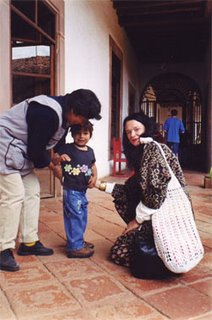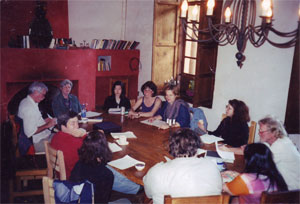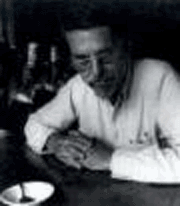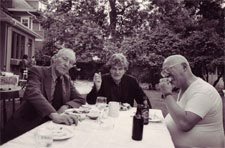As a child my mother and I drove through Mississippi with my older half-brother, Charles, in the early 1950's where we heard cotton pickers singing in the fields. That road trip is among my earliest memories. Going over the Mississippi River, we were involved in an accident. That's the first time I tasted a life-saver when a policeman handed me one through the car window.
Great Culinary classics almost always derive from ordinary people. You even see this in classic French cuisine. The renowned chef, Henri Charpentier
 for whom my father, Alexander Pierre Gens worked at the Cafe de Paris in Chicago circa 1930's in his classic Food & Finesse: The Bride's Bible, the first French culinary book widely distributed in America, must have had dozens of recipes for scrambled eggs naming them after famous Americans.
for whom my father, Alexander Pierre Gens worked at the Cafe de Paris in Chicago circa 1930's in his classic Food & Finesse: The Bride's Bible, the first French culinary book widely distributed in America, must have had dozens of recipes for scrambled eggs naming them after famous Americans.I was first introduced to Hoppinjohn by Marty Brennan-Sawyer at the Putney School where I cooked from 1996-98. Putney School is where I met my colleague who is also a poet, Chard deNiord, with whom I now co-direct the New England College MFA Program in Poetry. On and off over the years, I've cooked professionally or to supplement my income.
 For awhile, Chard and I, ran some poetry programs for the Great River Arts Institute in Patzcuaro, Mexico called "The Spirit & the Letter" with Tom Lux, Heather McHugh, Jerry Stern, Ellen Bryant Voight, Joanne Kyger, Jane Miller and Anne Waldman, who all visited at one time or another. Every morning, I made breakfast for all the poets after shopping in the colorful market and local bakery around the corner from 17 Ibarra Street, the address of our hacienda in Patzcuaro. Jerry Stern still mentions the scrambled eggs I made each morning. You’d think that was the only thing I knew how to cook! After breakfast, everyone would convene for writing workshops followed by the daily comida prepared by Esperanza, the housekeeper at Casa Don Miguel. Here Anne Waldman is with Alexandro and her mother. Lupe, one of the Puerepecha staff employed in running the house.
For awhile, Chard and I, ran some poetry programs for the Great River Arts Institute in Patzcuaro, Mexico called "The Spirit & the Letter" with Tom Lux, Heather McHugh, Jerry Stern, Ellen Bryant Voight, Joanne Kyger, Jane Miller and Anne Waldman, who all visited at one time or another. Every morning, I made breakfast for all the poets after shopping in the colorful market and local bakery around the corner from 17 Ibarra Street, the address of our hacienda in Patzcuaro. Jerry Stern still mentions the scrambled eggs I made each morning. You’d think that was the only thing I knew how to cook! After breakfast, everyone would convene for writing workshops followed by the daily comida prepared by Esperanza, the housekeeper at Casa Don Miguel. Here Anne Waldman is with Alexandro and her mother. Lupe, one of the Puerepecha staff employed in running the house. Casa Don Miguel is a huge hacienda, the length of a football field with four inner courtyards surrounded by rooms on one side. Built in the late 18th century, it was originally a nunnery. Casa Don Miquel was owned by Michael and Vladina Pavlik whose sons went to Putney School. At one point, they approached Chard asking if he would be interested in making an artists colony in Casa Don Miguel. Once I got involved, I was amazed to realize that the town of Patzcuaro was the place where the late Tibetan master, Chogyam Trungpa, my first Buddhist teacher, received many of his terma teachings for Shambhala, particularly his Werma sadhana practiced within the Shambhala Community. Today, Casa Don Miguel is owned by the Catholic school next door to 17 Ibarra Street. But for a couple of years I traveled several times each year to run programs. In the photo above, Ellen Bryant Voight is teaching a workshop in front of the fireplace, where by night, she entertained us with great stories and poetry gossip. She and her husband, Fran, were delightful guests.
Casa Don Miguel is a huge hacienda, the length of a football field with four inner courtyards surrounded by rooms on one side. Built in the late 18th century, it was originally a nunnery. Casa Don Miquel was owned by Michael and Vladina Pavlik whose sons went to Putney School. At one point, they approached Chard asking if he would be interested in making an artists colony in Casa Don Miguel. Once I got involved, I was amazed to realize that the town of Patzcuaro was the place where the late Tibetan master, Chogyam Trungpa, my first Buddhist teacher, received many of his terma teachings for Shambhala, particularly his Werma sadhana practiced within the Shambhala Community. Today, Casa Don Miguel is owned by the Catholic school next door to 17 Ibarra Street. But for a couple of years I traveled several times each year to run programs. In the photo above, Ellen Bryant Voight is teaching a workshop in front of the fireplace, where by night, she entertained us with great stories and poetry gossip. She and her husband, Fran, were delightful guests.During our first Spirit and the Letter Conference in 1999, I made a point of visiting Casa Werma, the house Trungpa’s family still owned in Patzcuaro. Close to the market, it is a small casa surrounded by an astonishing five acres of gardens. Deep into the property there were several smaller structures including a traditional Tarascan house on stilts. I stayed at Casa Werma several days prior to the conference and was appalled at the weird vibes and general strangeness of the place. Later, I discovered that the caretaker was running a brothal out of the house. As a testimony to its partying heritage, there was a huge glass heap of liquor bottles in the backyard. Another quality of Casa Werma was the almost incessant radio station playing 24 hours a day at the garage next door. hardly the contemplative environment I had envisioned. There was also a strange housekeeper who gave us the creeps, whom we later learned from the gardener was a local currandero. The movie, "Rough Magic” was filmed in the town of Patzcuaro and around Lake Patzcuaro which somewhat gives the flavor of the place as both a traditional colonial town but also a powerspot--a corridor into other dimensions, one senses on the subtle level.
 All the years I worked at Naropa in the 1980's, I moonlighted cooking part time at a sorority and catered a lot of poetry events for the Jack Kerouac School. My first job at Naropa was cooking for the Kappa Sigma residence during the 1984 Summer session. That was the year Allen broke up with Peter Orlovsky who moved back to New York with his girlfriend, Juanita Lieberman. Allen feeling a bit forlorn used to walk over to the Kappa Sigma and eat dinner with the poetry students. Sometimes Bob Creeley joined him. Here's a photo Allen took of Creeley at the Kappa Sigma dining table.
All the years I worked at Naropa in the 1980's, I moonlighted cooking part time at a sorority and catered a lot of poetry events for the Jack Kerouac School. My first job at Naropa was cooking for the Kappa Sigma residence during the 1984 Summer session. That was the year Allen broke up with Peter Orlovsky who moved back to New York with his girlfriend, Juanita Lieberman. Allen feeling a bit forlorn used to walk over to the Kappa Sigma and eat dinner with the poetry students. Sometimes Bob Creeley joined him. Here's a photo Allen took of Creeley at the Kappa Sigma dining table.That's really where I got to know Allen. I don't think he figured out until much later that I was part of the Naropa scene--then a student in the Buddhist Studies department. Every night after his meal, he would bring his dishes into the kitchen and wash them chatting, asking me questions thinking I was just a local girl working in the kitchen. One of the Naropa faculty, Fiz Harwood, told me that he was astonished when she told him I had a degree in Classics from Smith. I have to say that this sense of inquisitiveness was one of Allen's most endearing qualities. Some people feel that he was a misoginist but, in fact, he was immensely curious about all sorts of people--both women and men. I was always so impressed by his good manners. I guess, in my book, after long years working in bars and restaurants, you come to size up people's character quickly based on how they treat the hired help. Well, Allen got my OK early on from those initial contacts in the Kappa
Sigma kitchen. In my experience, the only other person, of note, who matched his good manners and depth of connection was the Benedictine monk, David Stendl-Rast who stayed that same season at KS for Naropa's annual Christian/Buddhist Conference prior to the poets.
 Here's a photo of three ilustrious beat authors chowing down on a lunch I made in honor of William Burroughs at the 1000 Mapleton Avenue house lent to Naropa for the summer of 1985 by Allen's old Columbia friend, David Padua. I spent eight weeks in the house living with a vairety of poetry faculty including Allen, Philip Whalen, and Nanao Sakaki. My favorite was Philip Whalen, a marvelous man with a totally interesting mind. I was very sorry when he died in 2002. He used to occasionally scare me creeeping up behind me and yelling some mantric sounding syllable tha tmade me jump. Later, after I had more training in Vajrayana Buddhism, I understood that he was creating an experience, the Tibetan's call "hedewa," a kind of shock that introduces one to primordial mind free from concepts. I also had a really strong connection with Philip dharmically. once when he was about to undergo open heart surgery, I had some powerful experiences while doing long-life practices for him. Some years later, after he had died and I was having a very difficult time with lots of obstacles in my life, I dreamt that Philip came to my aid reciting protective mantras and dispelled the negativity. I always felt that he was reciprocating my good intentions for him while ill. I only mention all this because it is possible to have an internal connection with someone with whom there is little actual contact. In retrospect, I'm very sorry I didn't pay him more attention although he made a number of overtures. He had a great mind, nor did he repress his emotions which sometimes ran from childish to downright tempermental. To read what it was like to be around him towards the end of his life, Randy Roark wrote a great essay. Michael Rothenberg also wrote about Philip's last year in his collection of poems,
Here's a photo of three ilustrious beat authors chowing down on a lunch I made in honor of William Burroughs at the 1000 Mapleton Avenue house lent to Naropa for the summer of 1985 by Allen's old Columbia friend, David Padua. I spent eight weeks in the house living with a vairety of poetry faculty including Allen, Philip Whalen, and Nanao Sakaki. My favorite was Philip Whalen, a marvelous man with a totally interesting mind. I was very sorry when he died in 2002. He used to occasionally scare me creeeping up behind me and yelling some mantric sounding syllable tha tmade me jump. Later, after I had more training in Vajrayana Buddhism, I understood that he was creating an experience, the Tibetan's call "hedewa," a kind of shock that introduces one to primordial mind free from concepts. I also had a really strong connection with Philip dharmically. once when he was about to undergo open heart surgery, I had some powerful experiences while doing long-life practices for him. Some years later, after he had died and I was having a very difficult time with lots of obstacles in my life, I dreamt that Philip came to my aid reciting protective mantras and dispelled the negativity. I always felt that he was reciprocating my good intentions for him while ill. I only mention all this because it is possible to have an internal connection with someone with whom there is little actual contact. In retrospect, I'm very sorry I didn't pay him more attention although he made a number of overtures. He had a great mind, nor did he repress his emotions which sometimes ran from childish to downright tempermental. To read what it was like to be around him towards the end of his life, Randy Roark wrote a great essay. Michael Rothenberg also wrote about Philip's last year in his collection of poems,During that summer of 1985, Philip had an attendant stay with him at the Mapleton house. Each evening they cooked up huge meals with pieces of beef the size of the BBQ surface. I read somewhere that Philip said the only thing his friends could not forgive was that he was "fat." But it was always fun to be around him as you never knew what he was going to say or do.
Later, once I got to know Allen and started working for him, it was amazing to see how he connected with people. Cab drivers were especially prone to his inquisitive inquiries. I was with him on that ride Bob Rosenthal writes about somewhere when he yelled, "Fuck Allah" to a Muslim cab driver only to engage the fellow in interesting conversation after getting a rise from him.
Once at Naropa around 1988, several prominent Indian poets came to visit as part of their tour organized by the Committee on Poetry, Allen’s non-profit organization to support poets. They represented a number of different language and religious groups. All of them gave long testimonials to Allen whom they credited for revitalizing Indian poetics by introducing a modernism and a more cosmopolitan aesthetic. One of the poets told a story about how Allen at a coctail party in the early 1960's while in conversation with the Minister of Finance or Economy, said he really liked his native Indian garb suggesting that American young people might like it too—thus, in a sense, planning a seed for revitalizing India’s economy as well through exporting Indian clothing catering to the hippie culture of the times.
As many people experienced, being a guest at Allen's table could be charming. Until he got the office on Union Square around 1991, for a couple of years, every day I picked up his mail at Stuyvesant Station and then delivered it to his 437 East 12th Street apartment around the corner to sort through it with him. Allen, still inhis pajamas ( the yellow pair) would be getting up around 10-11: 00 AM when he would put out breakfast often inviting me to join him.
There were almost always guests—poets, translators, journalists, old friends. A typical spread would include low-fat Alpine cheese, olives, good bread, sometimes boiled eggs, or kanji, iceberg lettuce with his family’s salad dressing recipe made with sugar in a white vinaigrette, fresh fruit-- like mango, papaya, or melon, and herb tea.
